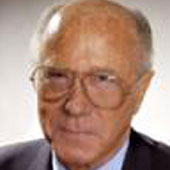More Geopolitical Fumbles by the United States
U.S. bombing, reluctant Arab friends and ill trained Iraqi troops to save the world?
September 15, 2014

One of the most absurd and half-baked geopolitical decisions in recent memory, based on totally erroneous intelligence, has come back to bite us – yet again.
The overthrow and hanging of Saddam Hussein was based on his non-existent nuclear weapons, coupled with a harebrained decision to disband the Iraqi army.
This, in turn, led to ISIS’ decision to recruit these former Iraqi officers to run the parts of Iraq those bloodthirsty extremists have conquered.
When ISIS collapsed the new, U.S.-trained Iraqi army last June, capturing much of its U.S.-supplied equipment, an unknown number of Iraqi officers signed up with ISIS.
Many of ISIS’s officers are former Iraqi officers who served under Saddam Hussein and were barred from rejoining the new Iraqi army.
The purge of Saddam’s Baath party led to the permanent dismissal of many of its members who had joined, if only as a precondition to getting a decent job.
Ignoring local advice
Three months before the 2003 U.S. invasion, senior U.S. officials discounted advice from knowledgeable, pro-American Iraqis not to disband the Iraqi army. “Keep the army together and you’ll be out of there in six months,” advised one prominent Iraqi.
At the time, this was the senior Pentagon official’s response: “Our own best information is that the liberation of Baghdad will be very much like the liberation of Paris after the invasion of Normandy.”
We Americans got Iraq wrong from Day One – and we keep digging a bigger hole, which began when we built a $1 billion U.S. Embassy in Baghdad, “as large as Vatican City,” for a U.S. Proconsul, long since abandoned.
In 2011, Libya was a similar geopolitical boondoggle. It has now ceased to exist as a state. 1.8 million Libyans, almost a third of the population, have fled to Tunisia, including hundreds of wounded from both sides in a civil war that borders on total anarchy.
France is now calling for action – specifically, air bombing – to bring Libya to heel. French aircraft were the first to strike Libya after NATO’s 2011 decision to assist an anti-Khadafy rebellion.
Air bombing does not win wars
The world has witnessed countless examples of how bombing and strafing do not win wars.
In the Vietnam War, Operation Rolling Thunder, a sustained bombing campaign against North Vietnam, did not dent the Hanoi regime’s determination to conquer South Vietnam and reunify the country that had been divided following France’s defeat at Dien Bien Phu.
And at Dien Bien Phu, the French had air superiority and a well-entrenched garrison of 13,000 – but 10,000 surrendered after a long bloody siege that ended with their close-quarter encirclement.
North Vietnam was a firm believer in boots on the ground as a precondition for battlefield success.
Carpet bombing of Germany in World War II did not bring about the Nazi defeat. It was a ground invasion from the Soviet Union and the allied invasion of Normandy that turned the tide.
The allies had air dominance after destroying Hitler’s air force. But that still didn’t guarantee success. It was a tough, bloody slog across France, the Netherlands, the Battle of the Bulge in Belgium, and Germany all the way to Berlin. Yet most of Germany’s major cities had already been decimated by U.S. and British bombers.
We cannot fight ISIS from the air alone
And back in northern Iraq and Syria, fighting ISIS from the air simply forces them to change tactics.
Despite current resistance in the White House and Congress, one cannot fight ISIS from the air alone. A successful campaign to eradicate ISIS also requires a de facto deal with the much-maligned Syrian President Bashar al-Assad based on the time-tested adage that the enemy of my enemy is my friend, albeit temporarily.
ISIS is now a well-entrenched fanatical force of up to 30,000 fighters, lavishly bankrolled by funds seized from banks in Mosul. It captured everything from tanks and armored personnel carriers to mortars and heavy machine guns that the U.S. had supplied to the poorly trained, reconstituted Iraqi army.
Retired Gen. John R. Allen, the former top U.S. commander in Afghanistan, is to lead the overall effort against ISIS. “What we are facing in northern Iraq is only partly a crisis about Iraq,” he said this week. “It’s about the region and potentially the world as we know it.”
And this is to be done with U.S. bombing alone coupled with what we now know are ill trained and ill equipped Iraqi troops, supplemented by reluctant Arab friends?
No way.
Takeaways
Despite current resistance in the White House and Congress, one cannot fight ISIS from the air alone.
We Americans got Iraq wrong from Day One – and we keep digging a bigger hole.
ISIS is now a well-entrenched force of up to 30,000 fighters, bankrolled by funds seized from banks in Mosul.

